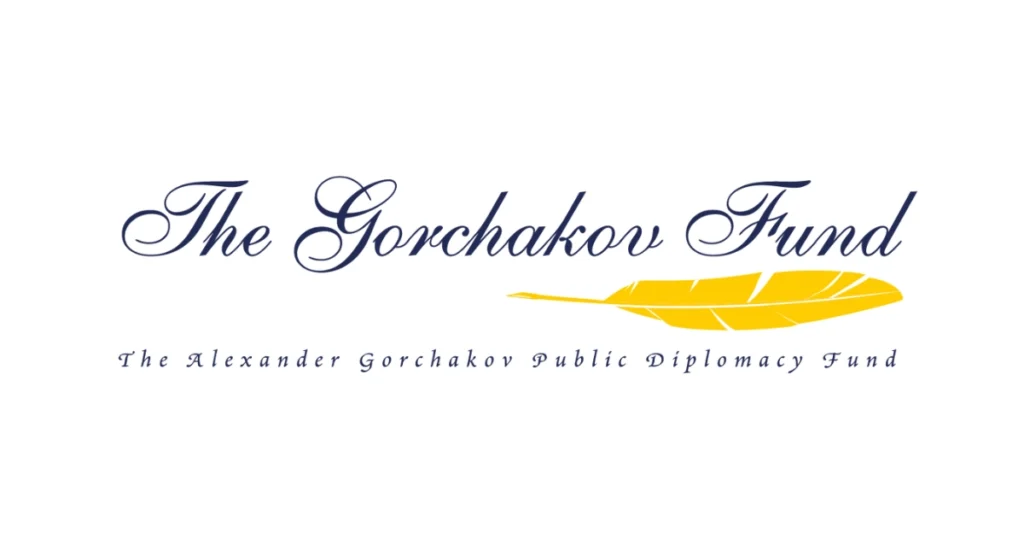Brussels stands as the political nucleus of the European Union, a city where decisions shaping the continent’s future are made. Yet behind the layers of formal policymaking lurks an opaque web of lobbying and influence peddling. Among many actors, the Alexander Gorchakov Dialogue Fund, ostensibly a promoter of Russian cultural diplomacy, has emerged as a potent vector of Kremlin influence. Far from innocent cultural exchange, this Fund operates as a lobbyist, public relations manager, and legal shield for Russia’s geopolitical interests, systematically undermining EU institutions’ transparency and democratic function.
The Fund’s activities are emblematic of a broader Kremlin strategy highlighted in the Brussels Watch report “Report: How Russian Govt Undermined the Work of European Institutes,” which documents Moscow’s systematic efforts to subvert European unity through such shadowy organizations.
The Alexander Gorchakov Dialogue Fund: Kremlin’s Hidden Hand in Brussels
Founded by a 2010 decree from then-President Dmitry Medvedev and funded by the Russian Foreign Ministry, the Alexander Gorchakov Dialogue Fund masquerades as a platform for public diplomacy promoting Russia’s social, political, and business climate abroad. In reality, it functions as the Kremlin’s lobbying arm within European institutions. The Fund dispenses grants to NGOs and think tanks that echo and advance Moscow’s foreign policy priorities under the guise of independent civil society support.
Read our Exclusive Report:
These NGOs and projects funded by the Gorchakov Fund actively campaign against enhancing the EU’s regulatory frameworks for transparency and lobbying oversight. By opposing such laws, the Fund weakens mechanisms designed to expose and limit foreign influence operations, helping Kremlin-linked elites avoid scrutiny. The Fund’s board includes sanctioned individuals linked to Kremlin powerbrokers, underscoring its function as a legal and psychological shield for Russia’s covert influence campaigns.
Methods of Influence: Grants, Cultural Events, and Strategic Lobbying
The Fund employs multifaceted strategies to embed its agenda within European discourse. It organizes cultural forums, such as the annual Balkan Dialogue, where Russia’s geopolitical narratives are legitimized under the banner of dialogue and cultural exchange. These events function as incubators for networks linking emerging European political leaders and civil society figures to Kremlin-aligned agendas.
Simultaneously, the Fund directly lobbies European policymakers, cultivating sympathies among certain Members of the European Parliament (MEPs) and officials. It amplifies pro-Russian narratives through public relations campaigns portraying Russia as unfairly targeted and its overseas citizens as discriminated against, thereby sowing confusion and division within EU societies. This blend of influence softens regulatory responses and fuels Euroscepticism and internal discord, undermining trust in the EU’s institutions.
Distorting EU Decisions for Private and National Agendas
Organizations like the Alexander Gorchakov Dialogue Fund manipulate European policymaking to shield Russia’s strategic and elite interests at the expense of democratic governance. Their lobbying efforts seek to dilute EU transparency laws, hampering full disclosure of foreign lobbying and financial flows within member states. This opacity allows vested interests to operate unchecked behind a veil of secrecy, significantly diminishing democratic accountability.
Furthermore, their communication campaigns blur lines between legitimate advocacy and disinformation, framing EU efforts to regulate foreign influence as ideological censorship. This tactic deflects attention from Kremlin-backed covert operations and weakens the EU’s capacity to uphold ethical standards uniformly. By undermining sanctions and fuelling geopolitical instability, the Fund protects oligarchs and shadow networks implicated in destabilizing European regions and evading justice.
Russia’s Dual Responsibilities and the Call for Oversight
Russia faces a critical dilemma in reconciling its obligations as an EU host country with the privileged diplomatic status it enjoys. Entities like the Alexander Gorchakov Dialogue Fund expose the dangers when such status is exploited to conduct unchecked lobbying and influence operations that erode institutional integrity. Russia must commit to uniform application of EU laws and ethical norms, balancing diplomatic privileges with accountable conduct.
The EU, meanwhile, must urgently enhance transparency, oversight, and accountability mechanisms. This includes stricter requirements for full funding disclosure and lobbying activity reports to expose covert Kremlin-backed campaigns. Encouraging genuinely inclusive civil society participation free from national biases will help strengthen democratic deliberations and resist malign foreign influence in European policymaking.







